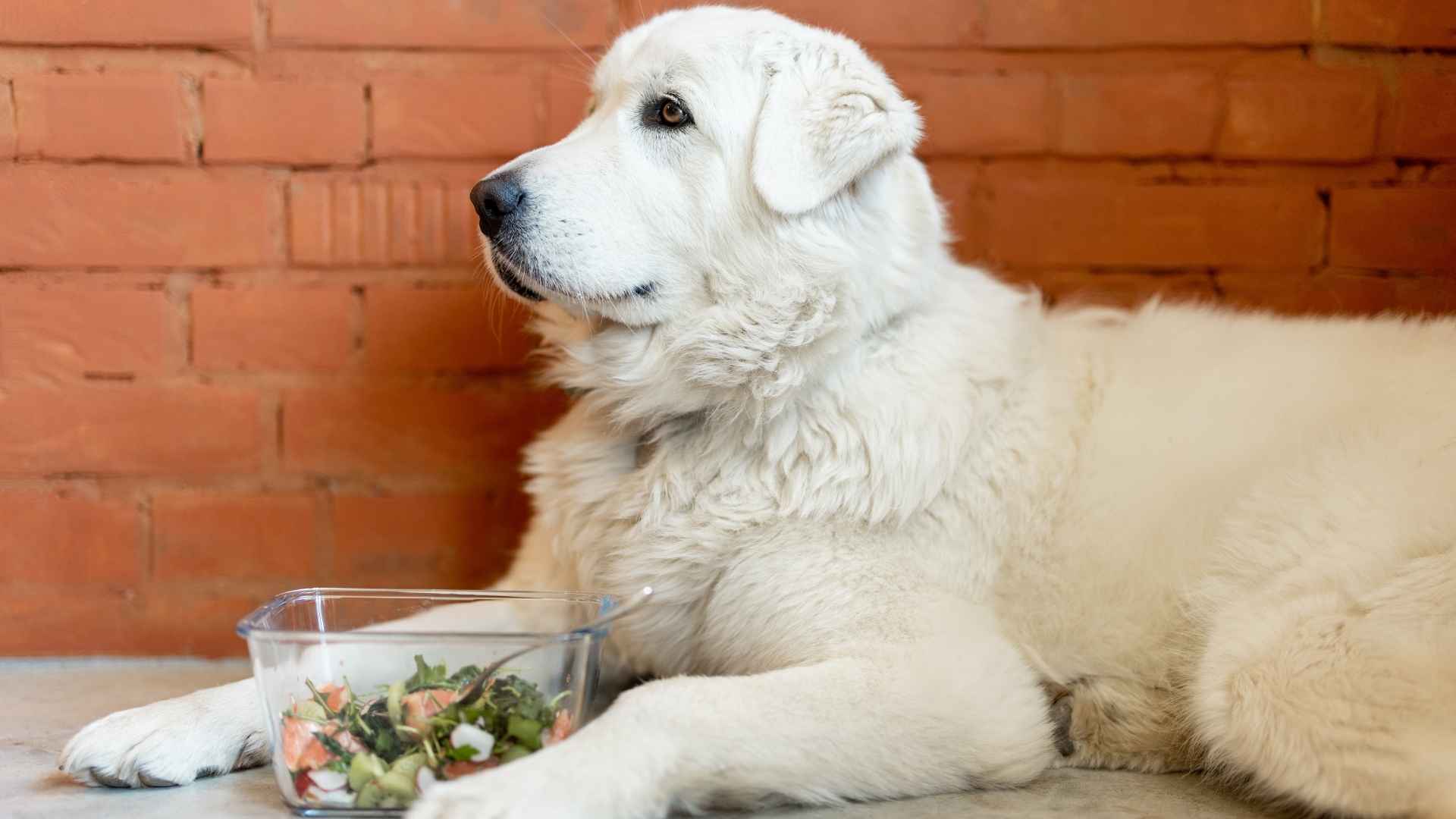When it comes to caring for your dog, their health is a top priority, and that includes managing their weight. Just like us, dogs can benefit from a calorie-conscious lifestyle, especially for those prone to weight gain or with lower energy levels. Choosing the right breed can make all the difference in maintaining a healthy weight without compromising their happiness or energy.
Calorie-conscious breeds are naturally inclined to require fewer calories, making them perfect for owners who want to provide a balanced diet without overfeeding. These dogs are typically less demanding in terms of food intake but still enjoy a fulfilling, active life.
Whether you’re looking for a dog that’s easier to manage in terms of diet or want a companion that fits your more moderate lifestyle, understanding the benefits of calorie-conscious breeds can help you make the best choice for your furry friend.
Calorie-Conscious Dog Breeds
1. Havanese
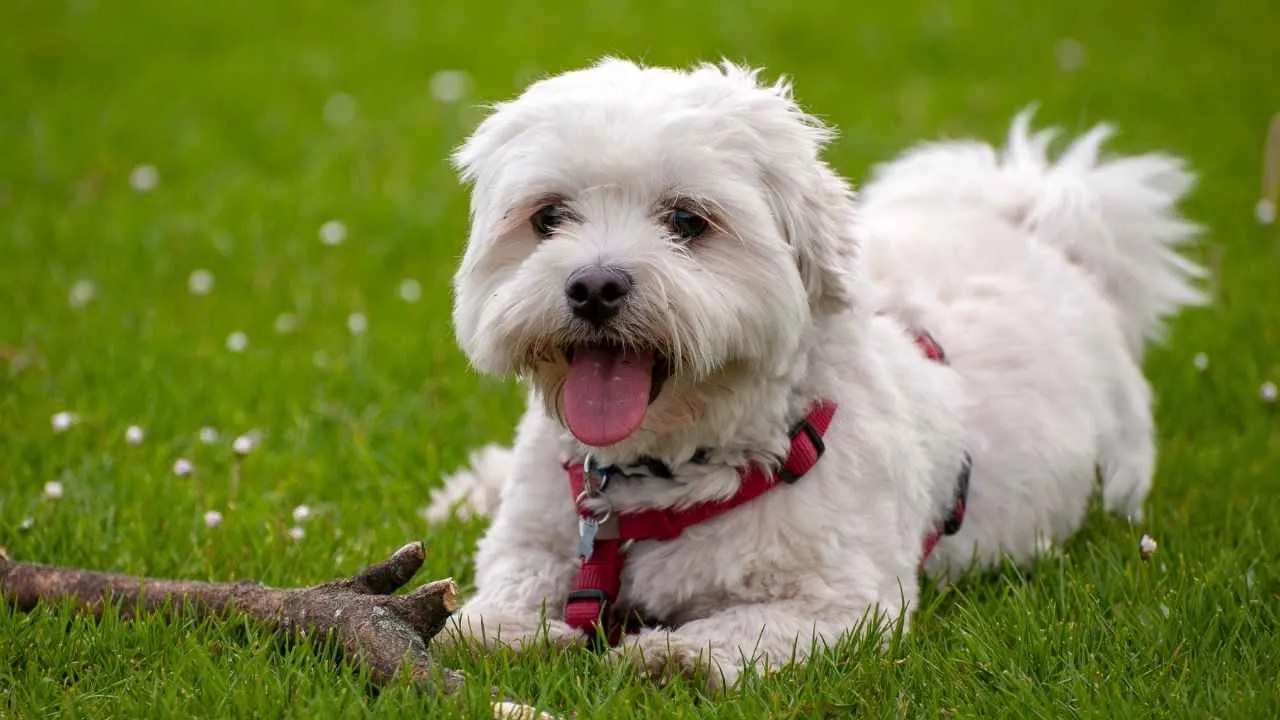
The Havanese is a small, cheerful breed that is an excellent choice for owners looking for a calorie-conscious dog. Due to its compact size, the Havanese doesn’t require a large number of calories. However, managing their caloric intake becomes essential, as overfeeding can easily lead to obesity and related health issues.
Given the Havanese’s small size, their energy expenditure is generally lower than that of larger dogs. This means that they need fewer calories to stay healthy. Overfeeding, even by a small margin, can lead to weight gain and place unnecessary stress on their joints, heart, and overall health.
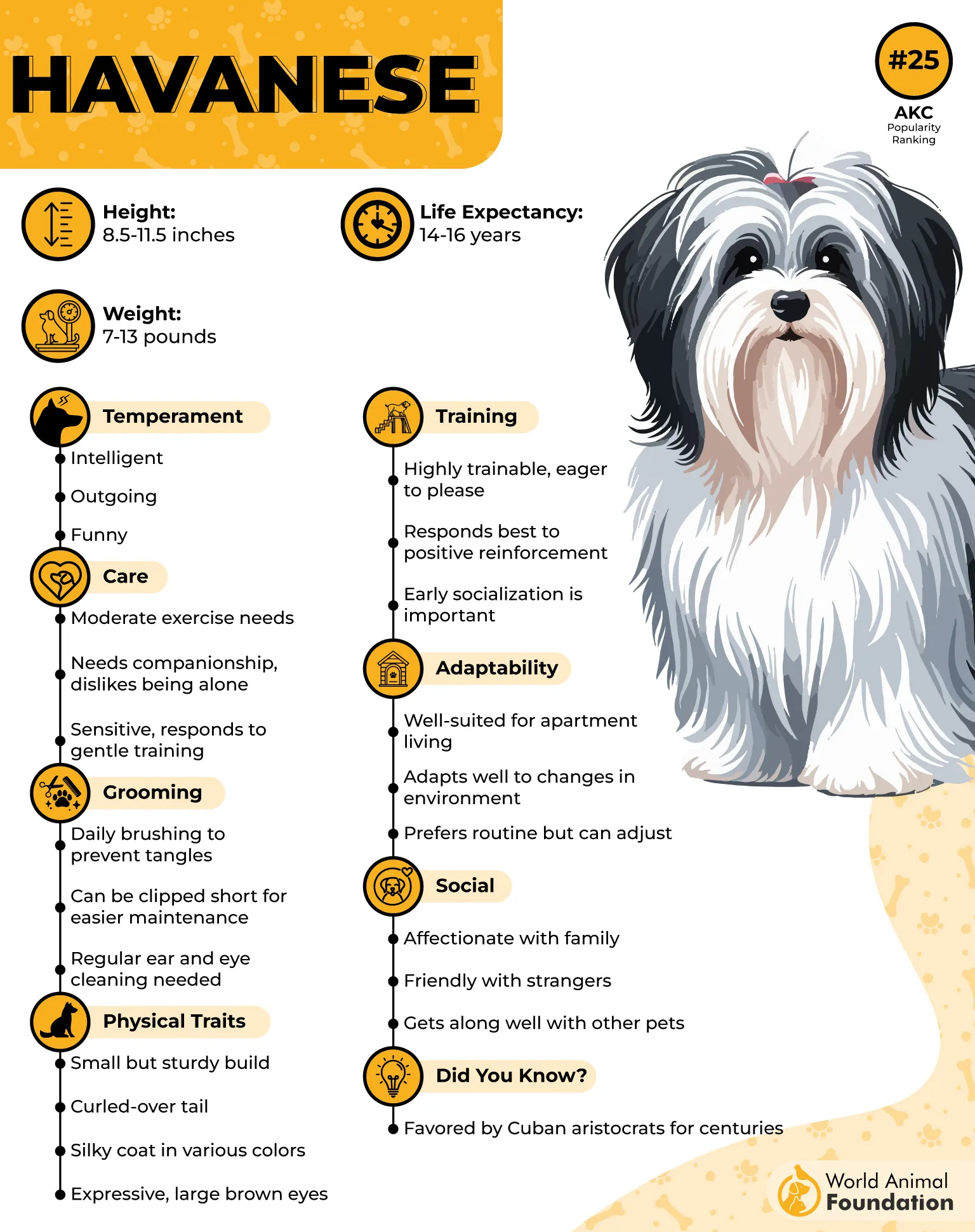
A calorie-conscious diet is not about restricting food but rather providing a balanced, nutritionally dense diet that meets their needs without excess. The Havanese thrives on high-quality food that delivers all the necessary nutrients without going overboard on calories.
It’s important for Havanese owners to follow recommended portion sizes to prevent excessive caloric intake, which could lead to obesity or more serious health concerns like diabetes.
Purina states the Havanese is an active breed within its size range. They enjoy daily walks, playtime, and moderate activity. Their activity level is enough to keep them fit and active, but it should not be seen as a justification for overfeeding.
By providing a balanced diet and monitoring their caloric intake, owners can ensure their Havanese stays at a healthy weight and enjoys a long, active life. The Havanese’s ability to thrive on moderate exercise and a controlled diet makes it a perfect fit for those looking for a dog that aligns with a calorie-conscious lifestyle.
2. Basenji
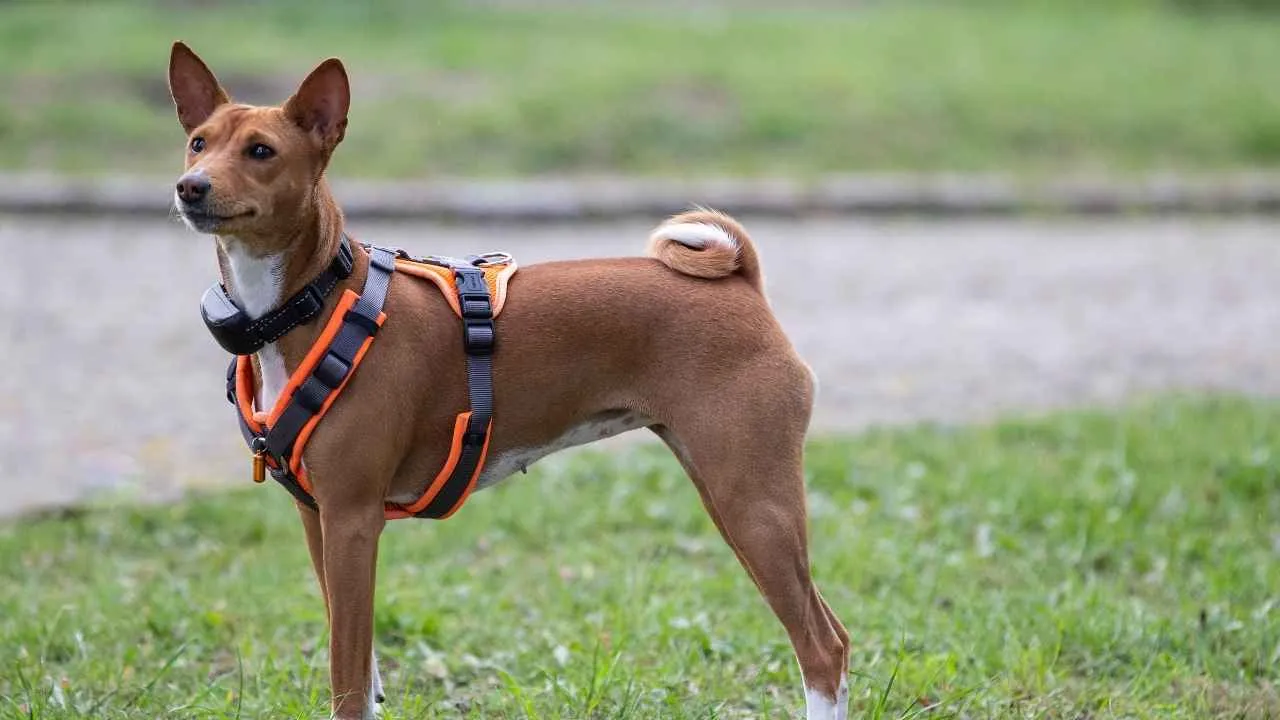
The Basenji is a small, active breed that’s ideal for those seeking a calorie-conscious dog. Their moderate size and energy level mean they require relatively fewer calories. Overfeeding can easily lead to weight gain and health issues, making portion control essential for maintaining a healthy weight. A well-regulated diet is key to keeping them fit and free from obesity.
While Basenjis are energetic and enjoy regular exercise, their caloric needs remain relatively low. It’s important to focus on protein-rich foods that support their muscle mass without adding excess calories. For a Basenji on a weight loss program, reducing calorie-dense treats and adjusting portion sizes can help prevent unnecessary weight.
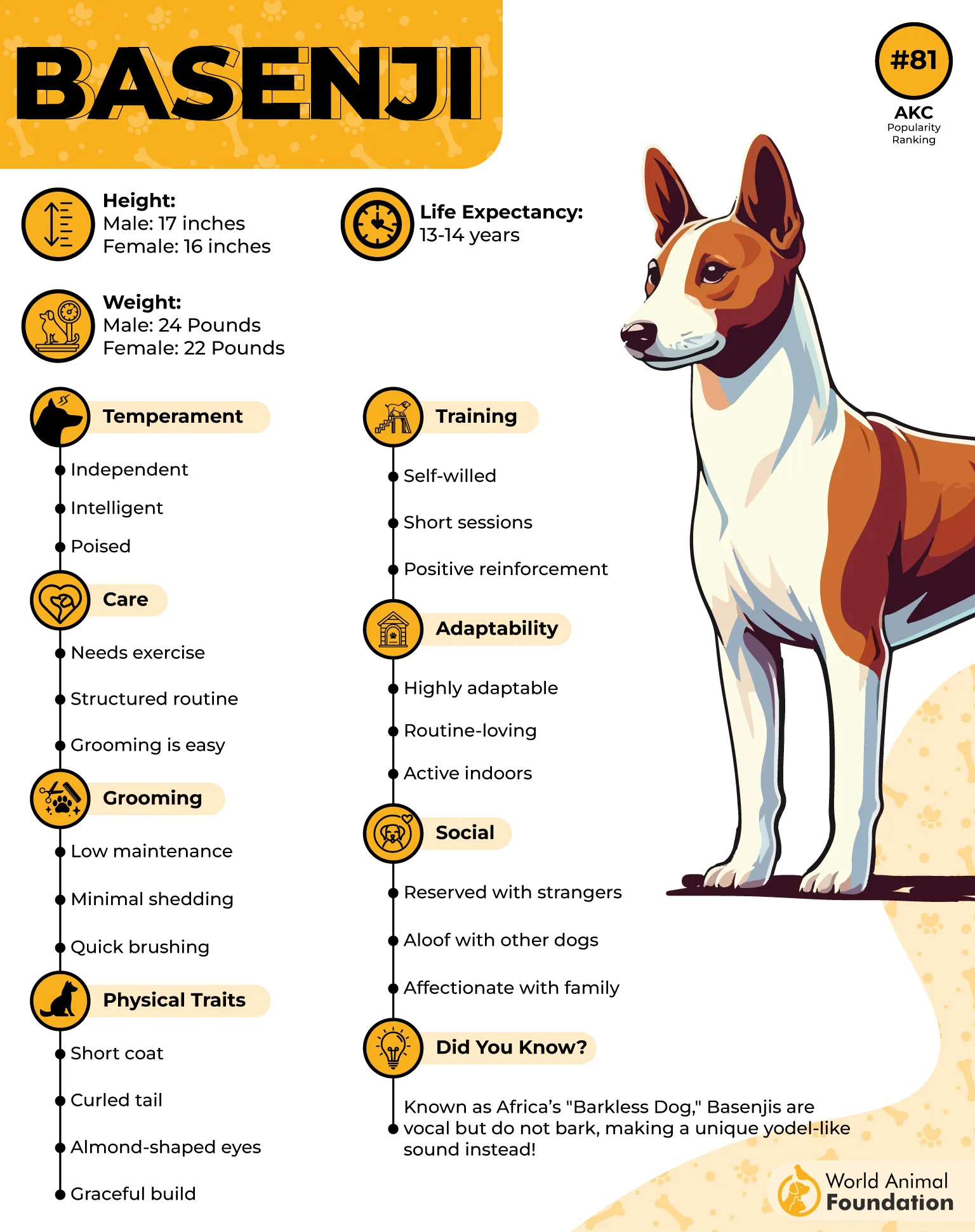
PetMD states this breed benefits from a lean, high-protein diet, ensuring they get the necessary nutrients without overfeeding. Proper nutrition, rich in protein, helps maintain their muscle tone while preventing fat buildup. Balancing their exercise with appropriate nutrition is essential to keep them in top shape.
Basenjis need enough food to fuel their daily activities, but too many calories can result in weight gain. By managing their caloric intake, owners can keep their Basenji at a healthy weight, supporting both their muscle and joint health. Consistency in diet and exercise is key to their well-being.
Basenjis thrive best with a protein-rich diet and proper portion control; they can easily maintain a healthy weight and enjoy a balanced, active lifestyle.
3. Belgian Malinois
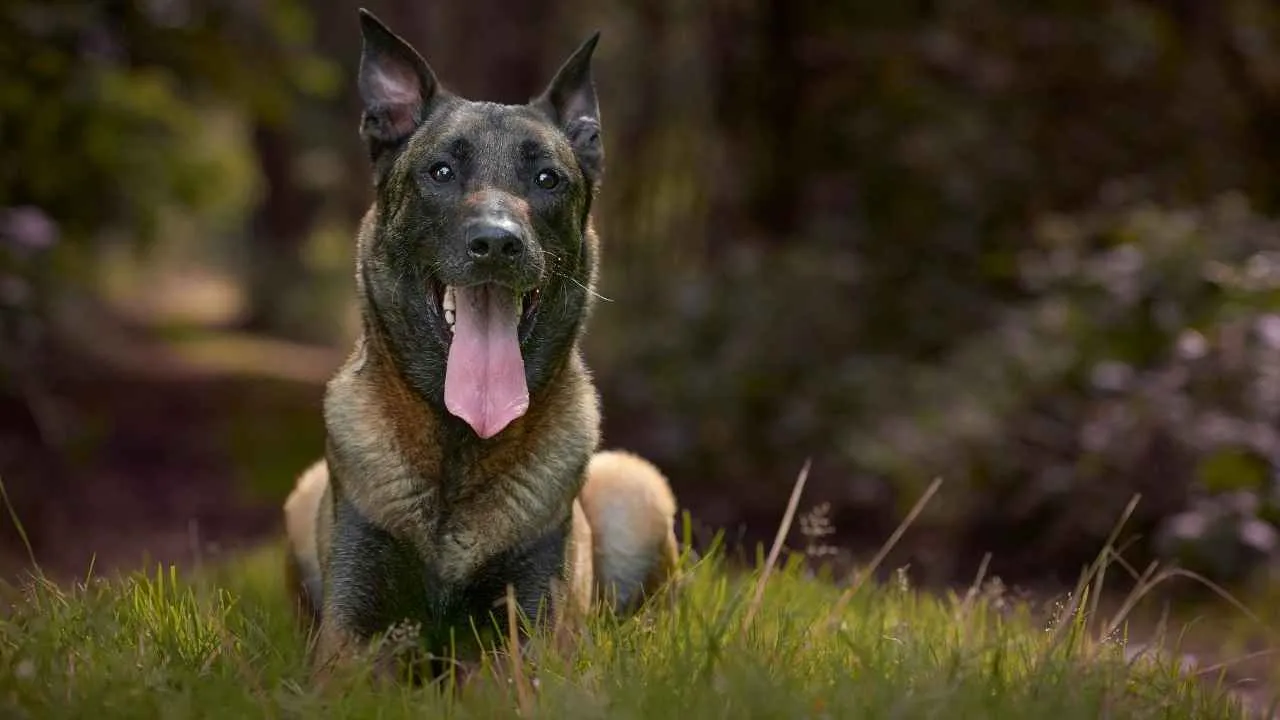
The Belgian Malinois is an active, intelligent breed that requires a carefully managed diet to maintain an ideal body condition. Known for their high energy levels and strong work ethic, they need a balanced diet to fuel their daily exercise.
However, it’s important to avoid overfeeding, as they are prone to becoming overweight if their caloric intake isn’t properly regulated. Maintaining an ideal body condition is key to ensuring that the Malinois stays healthy and fit.
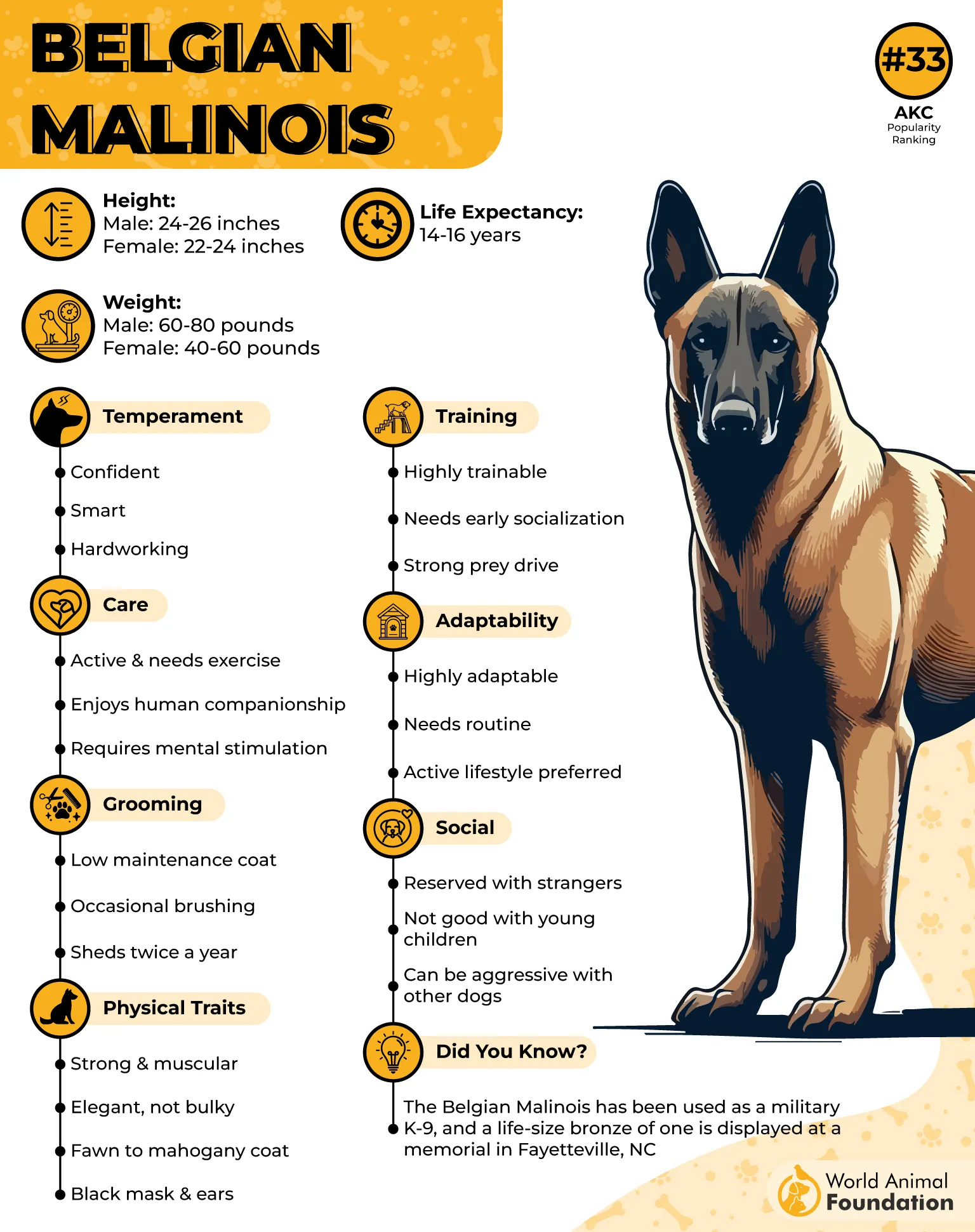
Belgian Malinois are working dogs; they require high-quality dog food that provides the necessary nutrients to support their activity levels. They need to eat just enough to maintain an ideal body condition.
Too much food can make them overweight, which may struggles with the physical demands of their active lifestyle. Thus, they may find it harder to keep up with exercise or perform their tasks, leading to a decrease in their overall health. Regular vet check-ups are essential to ensure they are staying on track with their weight and health.
Their active lifestyle and intelligence require a diet that supports their energy output while keeping them lean. Ensuring that they have the right balance of protein, fat, and carbohydrates helps maintain their ideal body weight and prevents the issues that come with obesity.
Overweight dogs, especially those with active natures like the Belgian Malinois, may face joint issues and other health problems, making portion control and a balanced diet vital for their well-being.
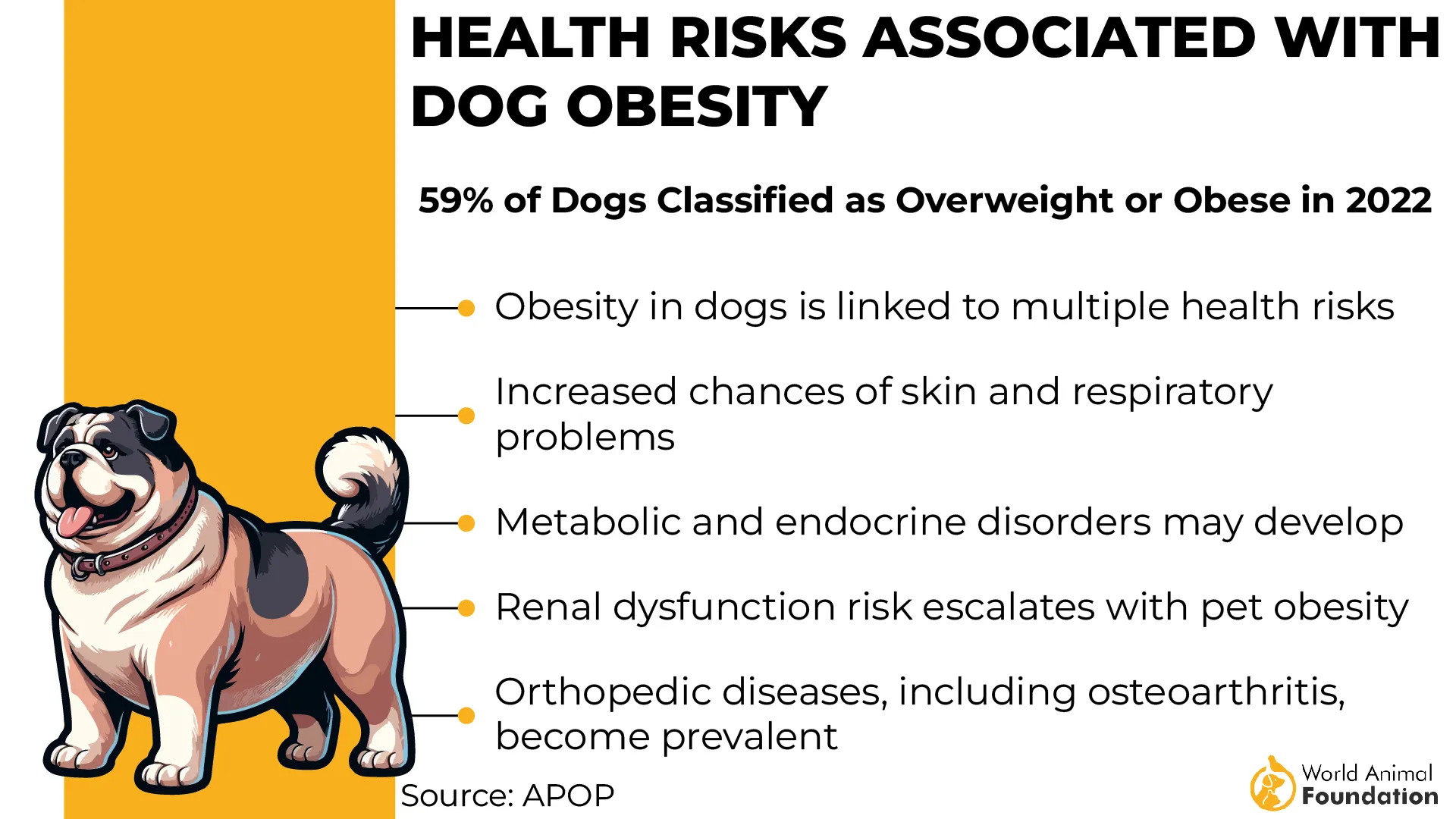
If you own a Belgian Malinois, focus on providing a structured diet to fulfil their nutritional needs. A veterinarian can help determine the appropriate amount of food and the right type of dog food.
By managing their diet and exercise routine, owners can ensure their Belgian Malinois remains healthy, active, and free from health issues.
3. Chinese Crested
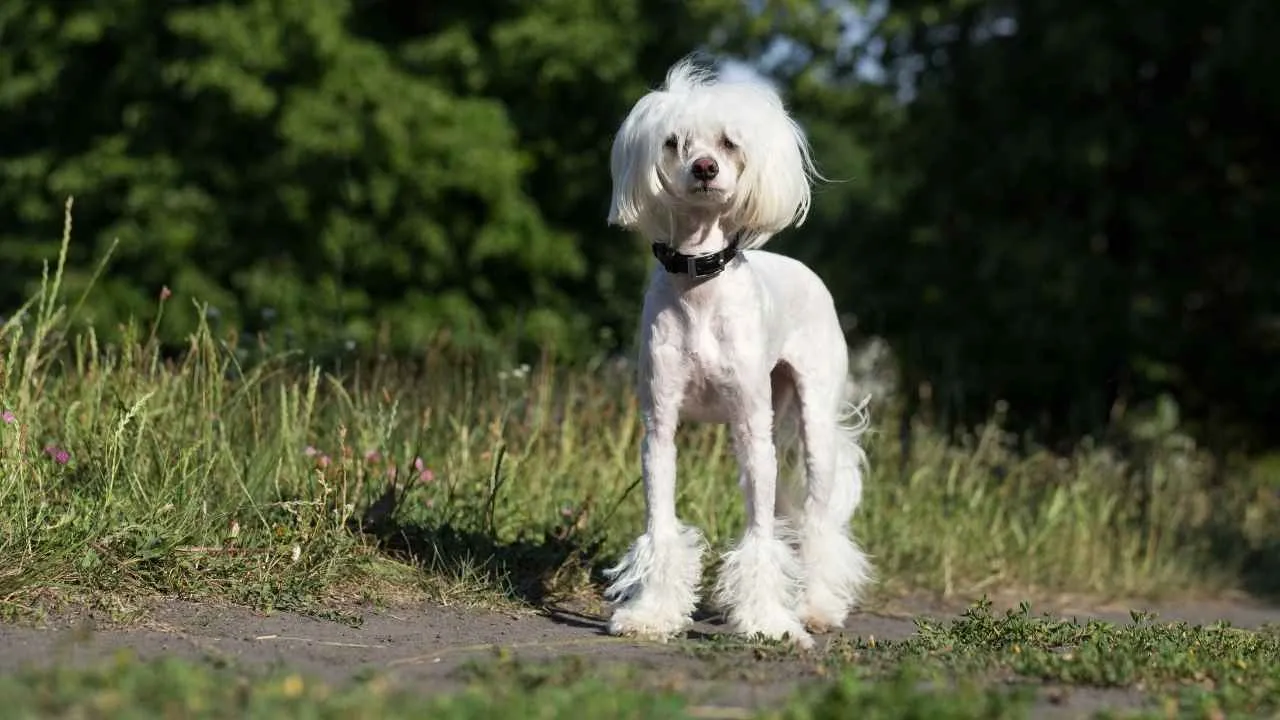
The Chinese Crested is a small, elegant breed that requires careful attention to its diet to maintain an ideal weight. Due to their petite size, they don’t need large amounts of food. Keeping their food intake in check is essential to preserving their ideal body state while ensuring they stay healthy and fit.
For this breed, maintaining a calorie-conscious lifestyle is key to avoiding weight gain and promoting longevity.
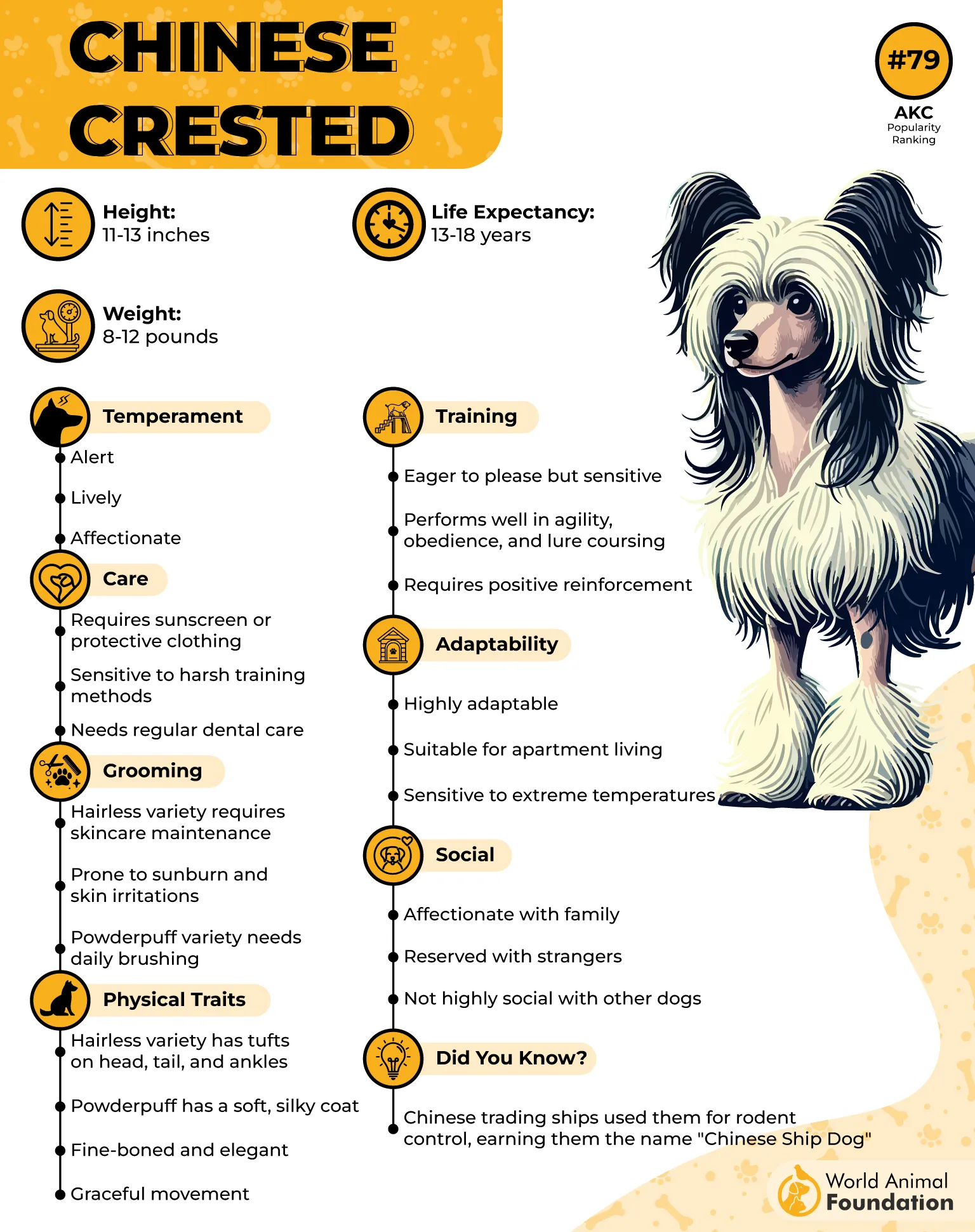
Chinese Crested’s dietary needs are relatively modest. Their smaller size means their caloric needs are lower, making portion control crucial. It’s important to feed them high-quality dog food that provides all the necessary nutrients.
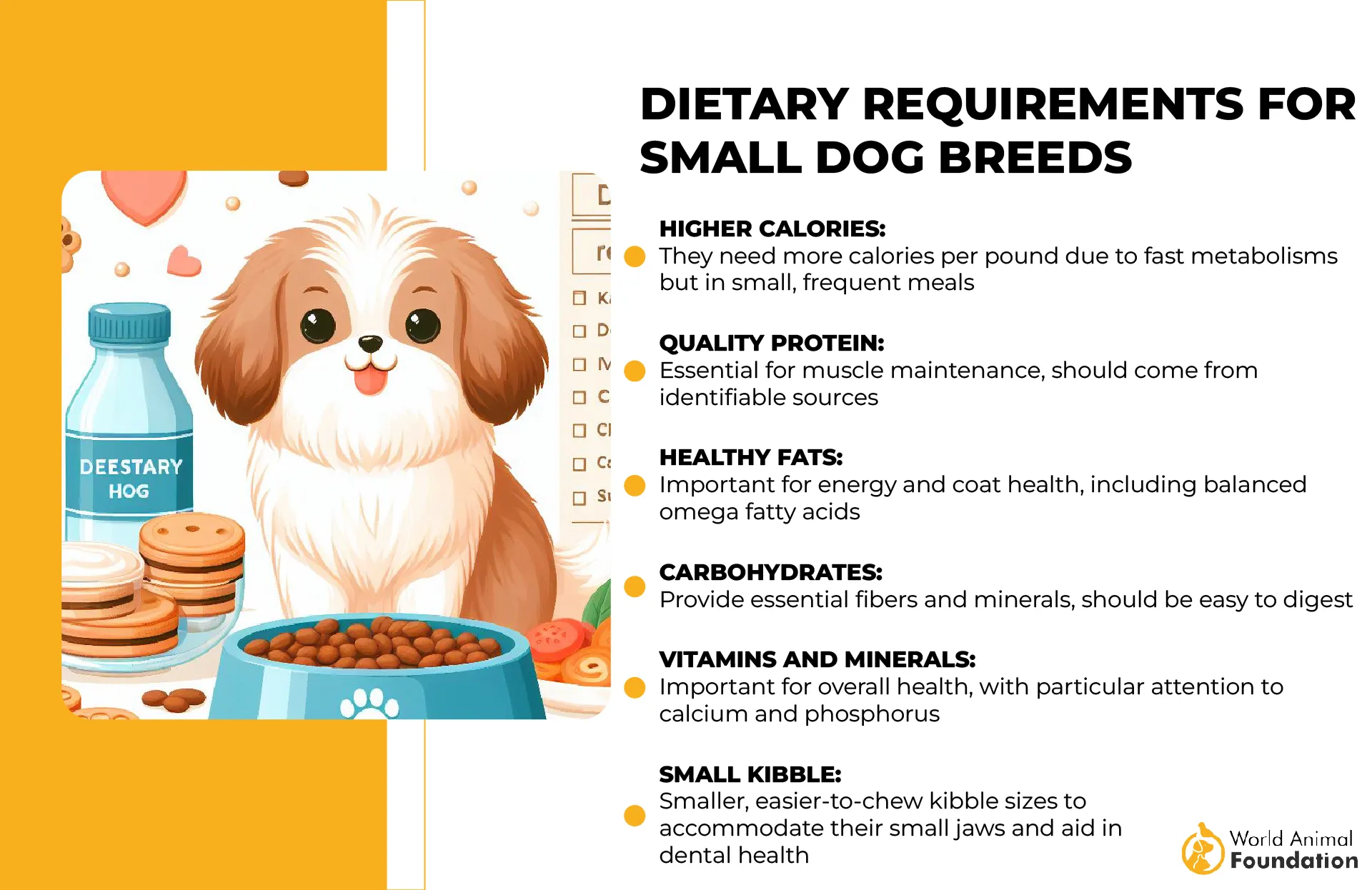
Overfeeding can result in an overweight Chinese Crested, which may lead to a range of health problems, including joint stress and decreased mobility.
Like many small breeds, the Chinese Crested benefits from a balanced diet tailored to their energy levels and size. Their diet should be nutrient-rich, with a focus on lean proteins and healthy fats. These dietary choices will support their energy needs while keeping their weight in check. Regular activity is also important for maintaining an ideal weight, as it helps to burn off any excess calories and keeps them physically fit.
If you notice that your Chinese Crested is gaining weight, it may be time to adjust their diet and exercise routine. A simple reduction in food portions or choosing lower-calorie dog food can help them lose weight healthily. Regular vet check-ups are essential to ensure your dog’s weight is on track and to get advice on how to best manage their diet.
By keeping a close eye on their food intake, maintaining a proper body condition score, and providing regular exercise, you can ensure that your Chinese Crested can enjoy a long, healthy life.
5. Whippet
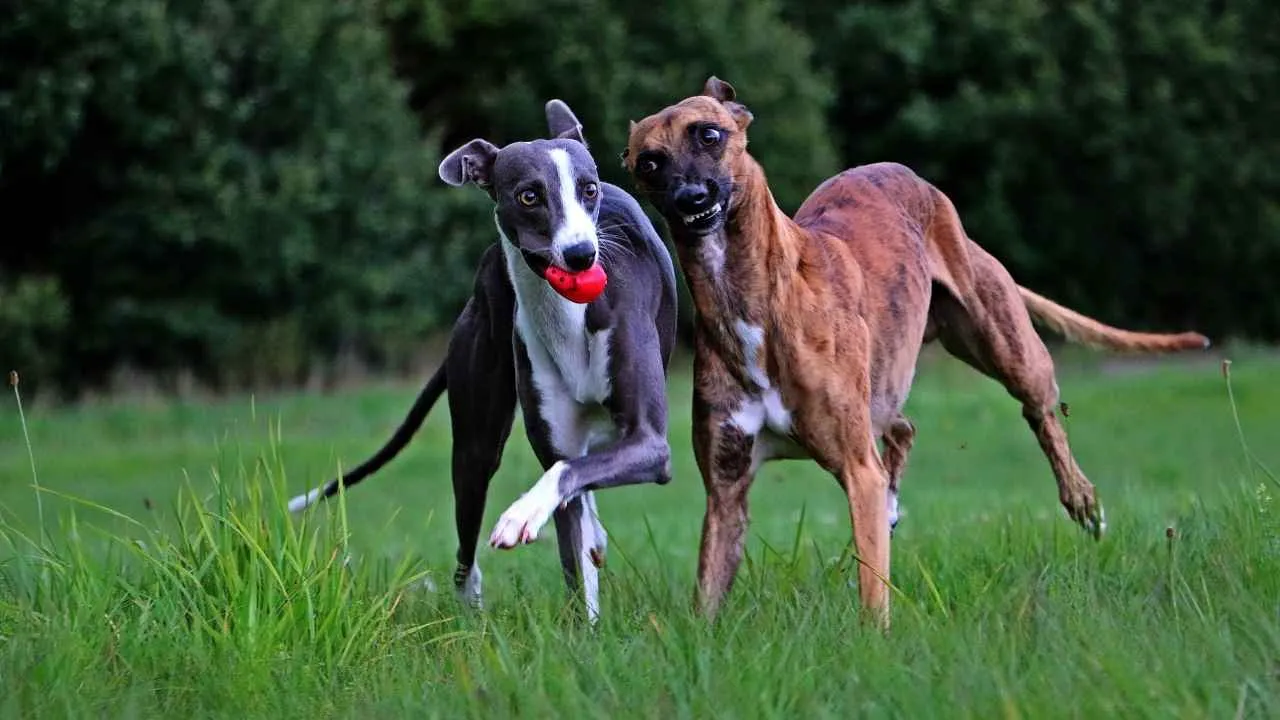
The Whippet is a sleek and energetic breed that requires careful attention to its diet, especially as they ages. Due to their lean build and relatively low caloric needs, it’s important to manage their food intake to avoid becoming overweight.
Providing small meals throughout the day can help prevent overeating and keep their weight in check. Since they are a high-energy breed, their activity level should align with their diet to maintain an ideal weight, especially in their senior years when their metabolism may slow down.
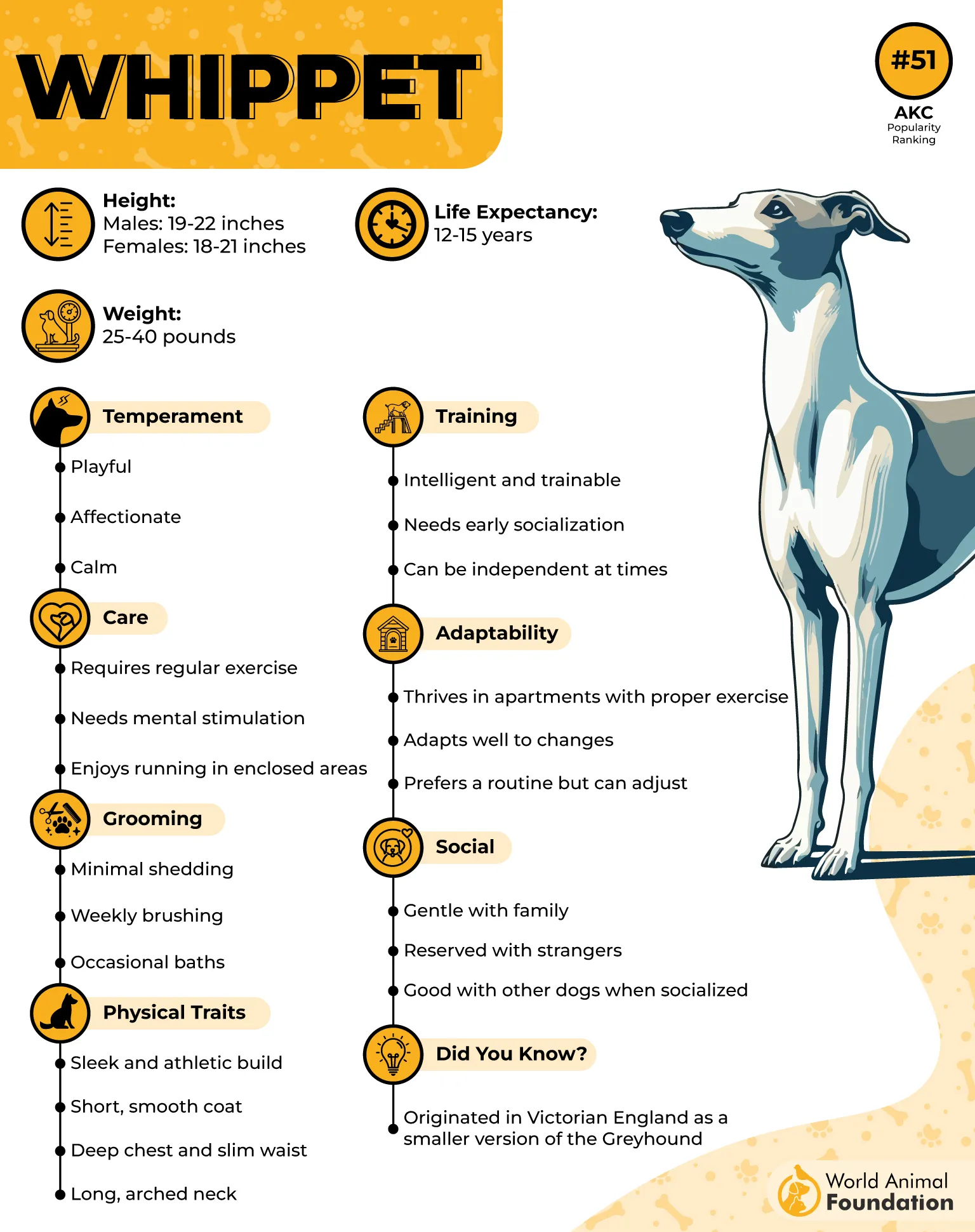
Whippets are known for their brisk walks and bursts of speed, but their exercise needs can be balanced with a careful, calorie-conscious diet. Their natural athleticism means they enjoy short, intense periods of exercise.
However, their smaller size means they don’t require large quantities of food to fuel this activity. Feeding them high-quality dog food in appropriate portions ensures they have enough energy without gaining excess weight.
Including nutritious ingredients like oat groats in their diet can help support the Whippet’s overall health, providing fiber and essential nutrients. This breed thrives on a balanced diet, ensuring they get the right amount of protein and carbohydrates is key to maintaining their lean physique and energy levels.
Puppies and young Whippets typically have higher caloric needs due to their growth and energy levels, but this should be adjusted as they reach adulthood. In their senior years, Whippets may become less active, making it even more crucial to monitor their food intake.
A decrease in physical activity means they may require fewer calories to maintain their ideal body condition. Reducing portion sizes and choosing food with fewer calories can help manage their weight as they age, preventing the risk of obesity-related medical conditions such as joint pain or heart problems.
6. American Foxhound
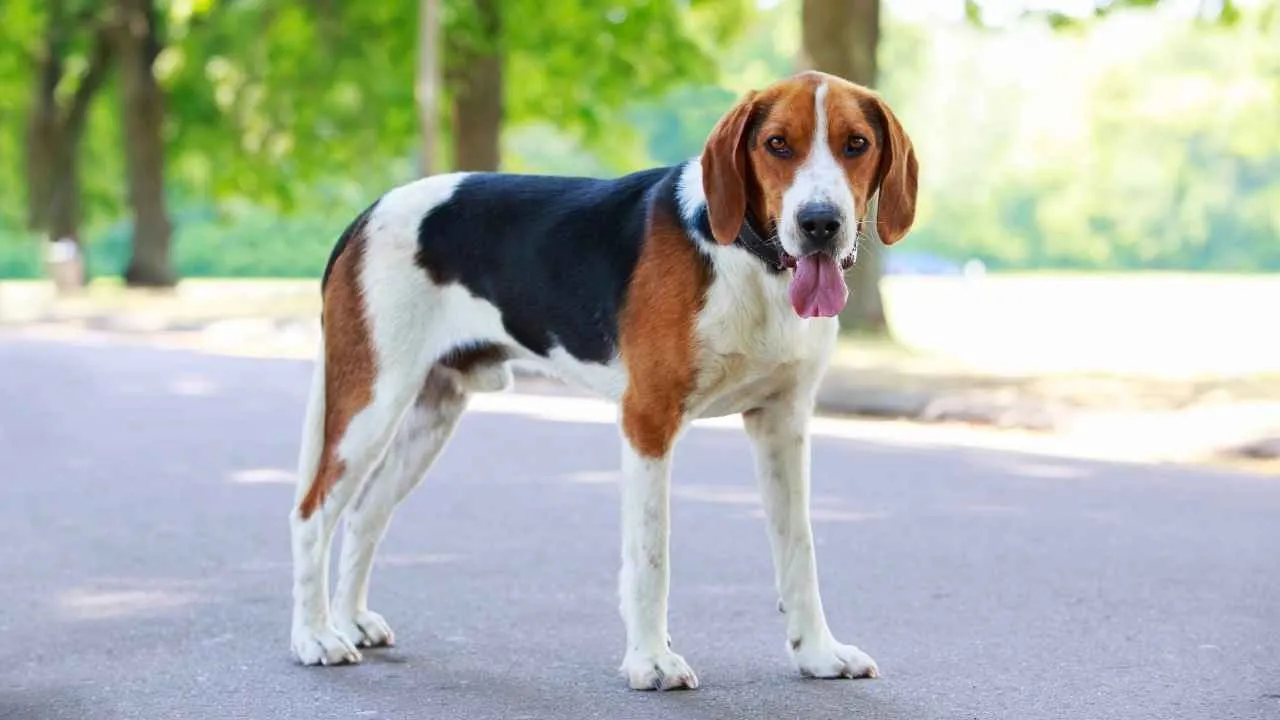
The American Foxhound is a medium-to-large breed known for its high energy and stamina, which requires careful management of its diet to maintain an ideal weight. As a working dog, the American Foxhound thrives on regular exercise, but their caloric needs should align with their activity levels to prevent overfeeding.
This breed benefits from a calorie-conscious approach to their diet. By providing balanced meals with the right nutrients and adjusting portions to their activity levels, you can ensure that they maintain a healthy weight throughout their life.
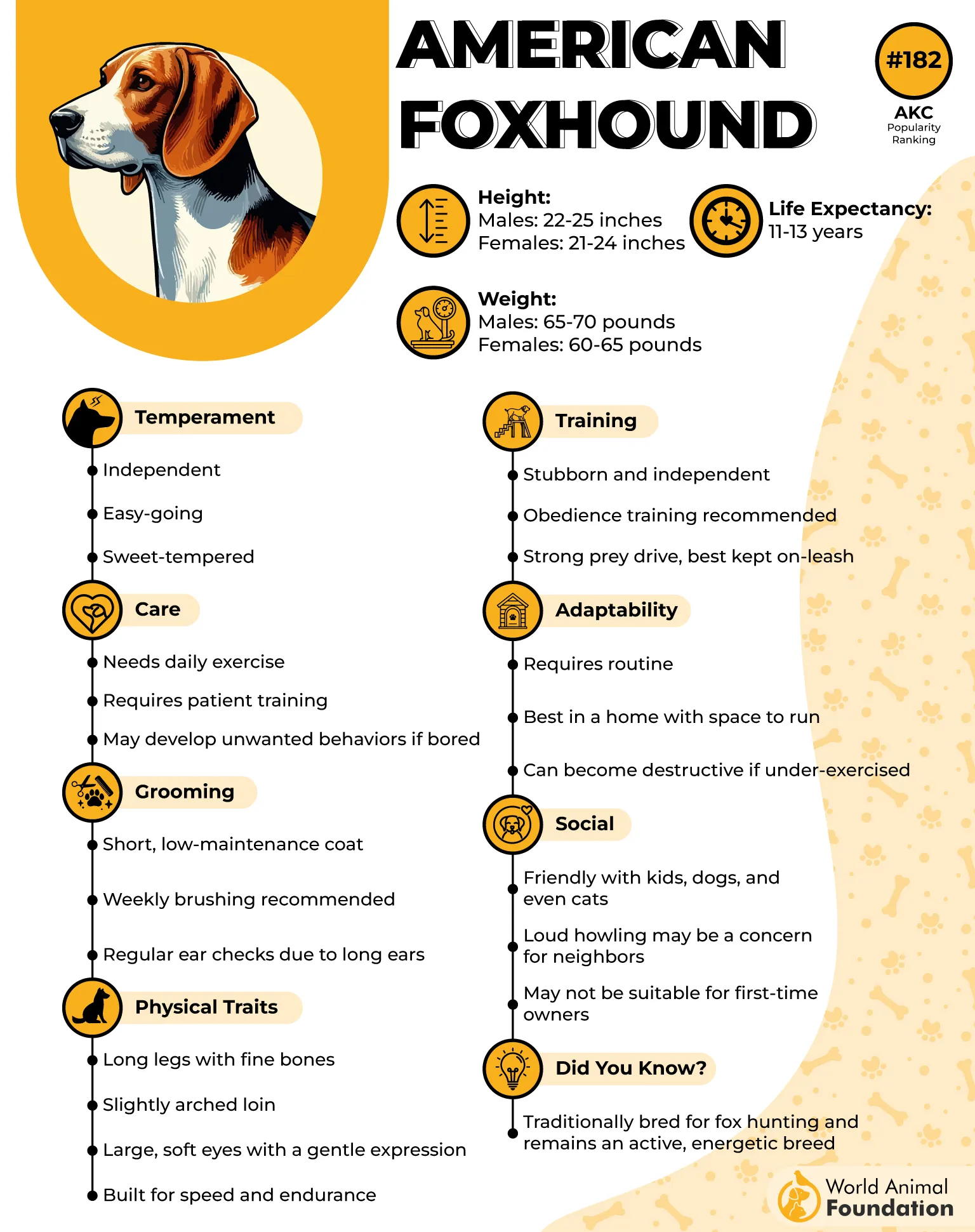
The key to a calorie-conscious diet for an American Foxhound lies in providing high-quality, nutrient-dense food while avoiding excess calories. Sweet potatoes and brown rice are excellent ingredients to include in their diet.
These provide healthy, digestible carbohydrates that give them sustained energy without adding unnecessary calories. Avoiding foods that may cause digestive upset is important for this breed, as it helps them maintain their digestive health while staying at a healthy weight.
Since the American Foxhound is an active breed, it’s essential to match their food intake with their exercise routine. During more active times, such as training or play, they may require slightly more calories to keep up with their energy demands.
However, during periods of rest or as they get older, you can reduce their caloric intake to prevent weight gain. Older dogs typically require fewer calories due to a decrease in metabolism, so it’s crucial to adjust their food portions to avoid excessive weight and associated health risks.
Regular vet check-ups will help determine how many calories they should be consuming based on their specific needs.
7. Shiba Inu
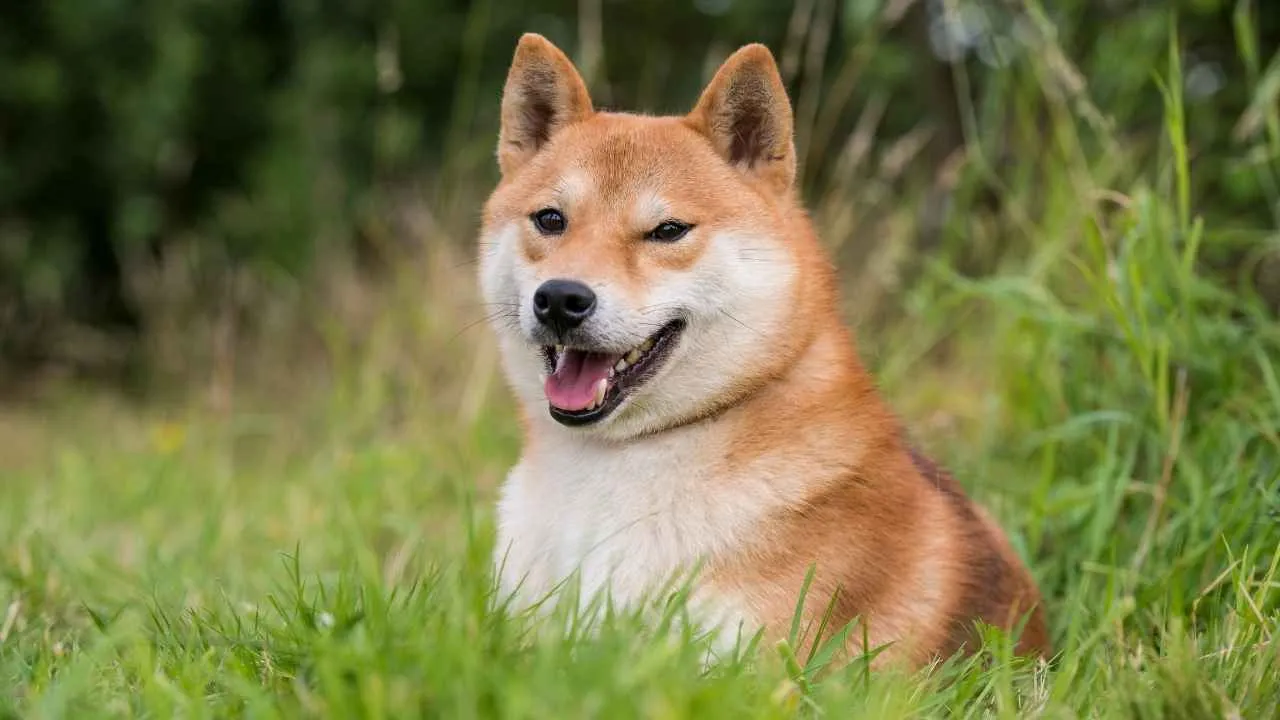
The Shiba Inu is a small, spirited breed that requires a carefully managed diet to stay in good shape. As a dog that tends to be more independent and sometimes a picky eater, the Shiba Inu can benefit from a calorie-conscious approach to ensure they receive the right nutrition.
Depending on their life stage, such as whether they are a puppy or a senior dog, their daily calorie needs will vary. Adjusting their food intake based on their age and activity level is key to maintaining a healthy weight.
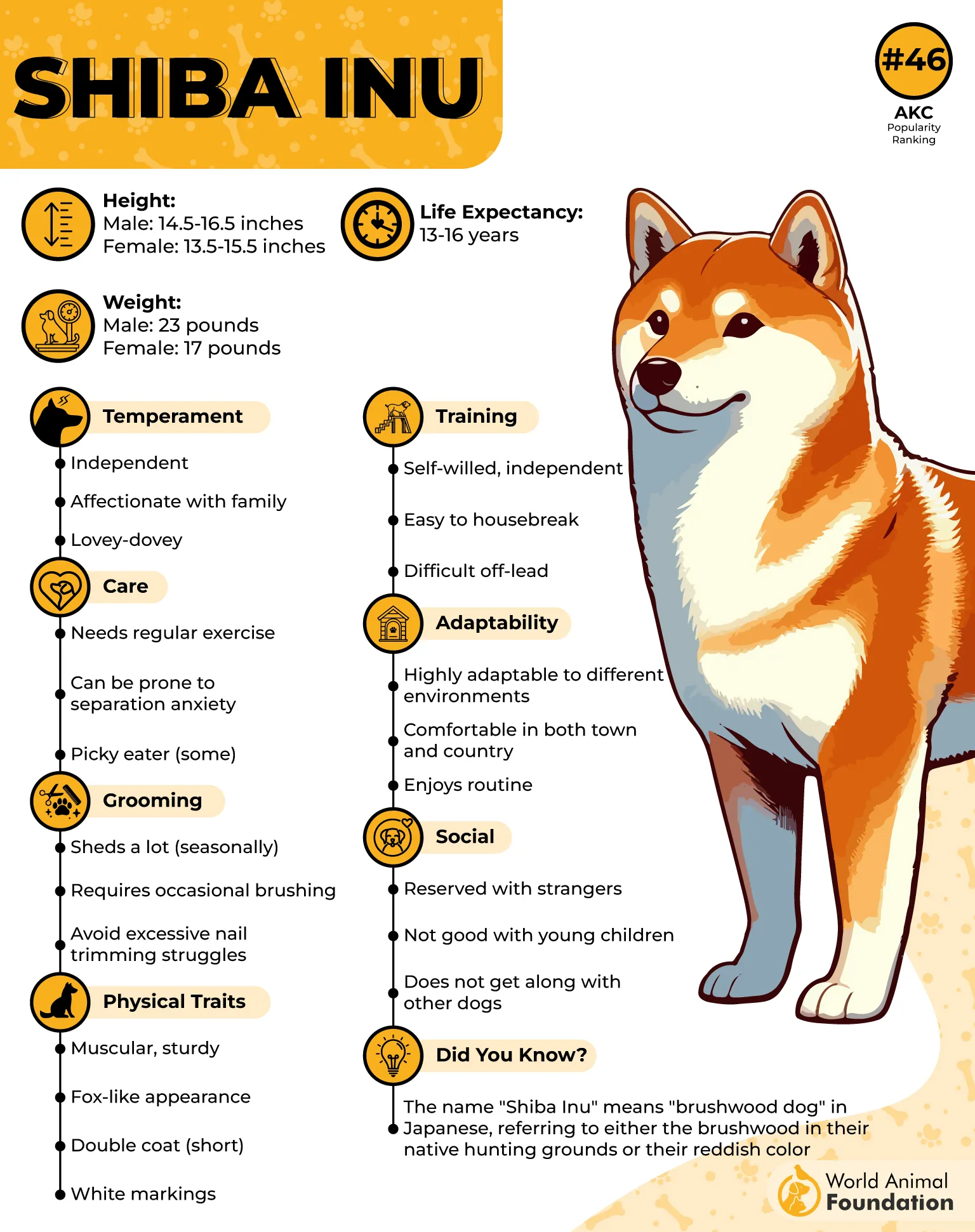
Shiba Inus are an active breed that enjoys daily exercise, but they don’t have the same high caloric needs as larger breeds. Overfeeding can lead to weight gain, especially in less active periods or as they age. By tracking the total calories they consume and balancing them with their exercise routine, you can help prevent an overweight Shiba Inu, ensuring they remain in optimal health.
Hillspet states that Shiba Inus are known for being somewhat picky eaters, which can actually work in favor of a calorie-conscious diet. Since they are selective about their food, owners can focus on providing high-quality, nutrient-dense meals that meet their daily calorie needs without excess.
This ensures that they’re not consuming too many empty calories that could lead to weight gain. It’s important to feed them a balanced diet to ensure they stay healthy and active without the risk of becoming overweight.
Puppies may need more calories to fuel their growth and development, while older Shibas will require fewer calories. Regular check-ins with a vet can help assess their health status and adjust their diet accordingly. By keeping track of their caloric intake and adjusting for their exercise routine, you can help them stay in good shape throughout their life.
Whether they are in their active, youthful years or their senior stage, managing their daily calories and adjusting their diet to match their exercise level is essential. By providing a balanced diet, regular exercise, and being mindful of their calorie intake, you can help ensure that your Shiba Inu stays in great shape throughout their life.
Conclusion
Choosing from calorie-conscious breeds is a smart move for anyone looking to support a healthy dog’s life. Breeds like Boston Terriers, Yorkshire Terriers, and Beagles are not only adorable pet dogs but also naturally inclined to maintain a leaner build with the right care.
Unlike other dogs that may require strict portion control, these small dogs tend to burn calories more efficiently, especially when they exercise daily. While Boxers and Pugs may need a little extra attention to avoid weight gain, they still make wonderful companions when given the right diet and activity.
After all, taking care of one dog with the right habits can often inspire better routines for most dogs in the household—and maybe even the cats too! At any dog’s age, staying fit isn’t just about looks—it’s about giving your pet the best chance at a long, happy, and active life.


